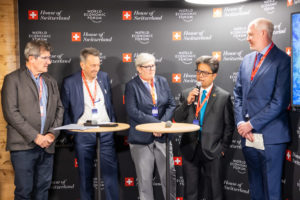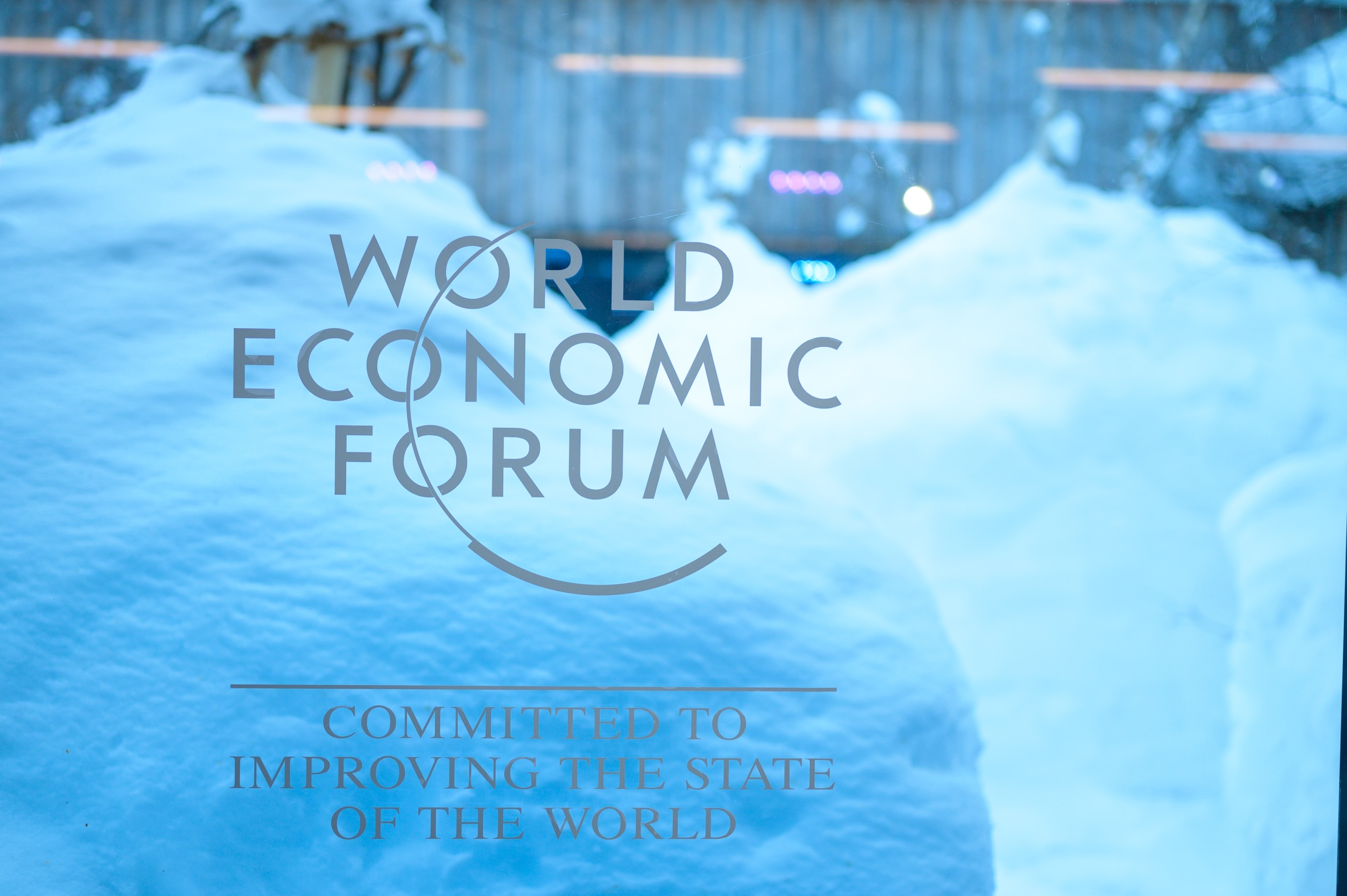Reflections from the World Economic Forum Annual Meeting January 2024, held under the theme: Rebuilding Trust.

A better calibration of entrepreneurs, businesses, and investors in frontier markets can help shake off the doom and gloom of global fragility and build a safer world.
Although conflict is on the rise, at the grassroots in many countries bearing the brunt of violence there is a surprising amount of hope, resilience, and entrepreneurship.
Decades of international development spending on skills and education combined with the global reach of value chains has lifted billions out of poverty. Internet and smart phones have further accelerated this process creating a generation of “micro-multinationals” – small to medium sized businesses hungry to participate in the global economy.
But the success of co-opting much of the world into economic aspiration has a dark side, if these aspirations go unfulfilled, or entrepreneurs are restricted from participating in the market, conflicts can spark.
One of the big problems we discussed this week is that entrepreneurs in conflict zones lack access to capital, global business networks and markets. Current economic mechanisms designed to stabilise conflict zones provide little long-term employment and resulting stability.
Aid is not an investment tool, and donor funds are notoriously bad at job creation. Livelihood projects promoted by development agencies are often too small to help entrepreneurs build big enough businesses to exert a stabilizing influence on their surroundings.
Large pools of capital in development finance institutions are designed to build big things like roads, airports or agro-industrial businesses, and struggle to transact deals less than $20m in size.
In our experience the real impact is in smaller deals, between $500k and $5m. This is where talented local entrepreneurs are building businesses that exert stability in fragile communities. Creating employment and income growth that provide powerful economic incentives for communities to move away from violence and towards peace.
The precursor elements have all been built, but the mechanisms to connect aspirational entrepreneurs working in fragile countries to investors are not functioning properly. So, there is a missing middle, and this represents a huge opportunity.
The Peace Dividend Initiative’s response is to bring venture capital models to places underserved by investors. Focusing on building incubation pipelines and then investing in deal sizes between $500k and $5m through our Peace Venture Fund (PVF) mechanism.
But PDI is just one small emerging actor, the real gamechanger to make the world more stable, would be for private sector actors to begin engaging coherently in peacemaking.
There are countless examples of where the private sector has been able to support and secure long-term peace; from the reconstruction of Europe after the World Wars to foreign direct investment in Northern Ireland to tackling Kenyan election violence, when the private sector acts in concert with peacemakers, the results can be impressive.
Shockingly at a time when conflict is on the rise, both public and private investment in peacemaking is at historic lows – with the most underinvested Sustainable Development Goal (SDG) being number 16 – whose goal is to “Promote just, peaceful and inclusive societies.”
The last few years have been a stark reminder that a clear business case to invest in peace exists. With attacks in the Suez Canal shipping area contributing to global inflation, the war in Ukraine affecting food prices around the world, and the cost of crude rocketing due to conflict in the Middle East.
In response PDI has been engaging business leaders at this year’s World Economic Forum to discuss how the private sector can respond to the alarming re-emergence of conflict. There is a serious willingness to engage, probably the most serious in decades as business feel the tangible impact of war on their balance sheets.
But what can businesses do to support global peacemaking?
We suggest three clear actions.
- Participate in Economic dialogues in support of peace.
- There are currently about 30 active major peace process taking place, led by a constellation of states, UN agencies and private peace mediators. These overwhelmingly involve political actors. We must include more economic actors at the early stages in these processes and develop economic plans to support and secure the ceasefires and peace agreements negotiated.
- Incubation of peace supporting businesses in conflict affected areas.
- There are entrepreneurs in every corner of the planet, with good ideas and a willingness to work hard to leap out of poverty and fragility. Much reporting on conflict zones focuses on the grim aspects, and this misses the many inspiring and resilient people on the ground, who have remarkable courage in building businesses in the face of so much adversity. They are not looking for handouts but guidance in developing their products and services and the chance to compete fairly in the market. They need private sector partners to help them get started and scale.
- Peace supporting investments.
- Impact investing is making serious gains in areas like sustainability, education, and housing. But there is no major effort yet to channel private capital towards helping secure long term and sustainable peace. But it is coming, we, along with several other actors have developed the +P framework to guide investors towards securing peace outcomes. It can be as simple as investing in businesses that employ former combatants or employ former adversaries to work in the same team.
- We are also aiming to raise $100m for our Peace Venture Fund (PVF) in 2024 and deploy this capital to grow businesses in conflict affected areas.
We are looking for partners to help scale this work.
If you would like more information or have an idea for where we might work together, please contact us.
